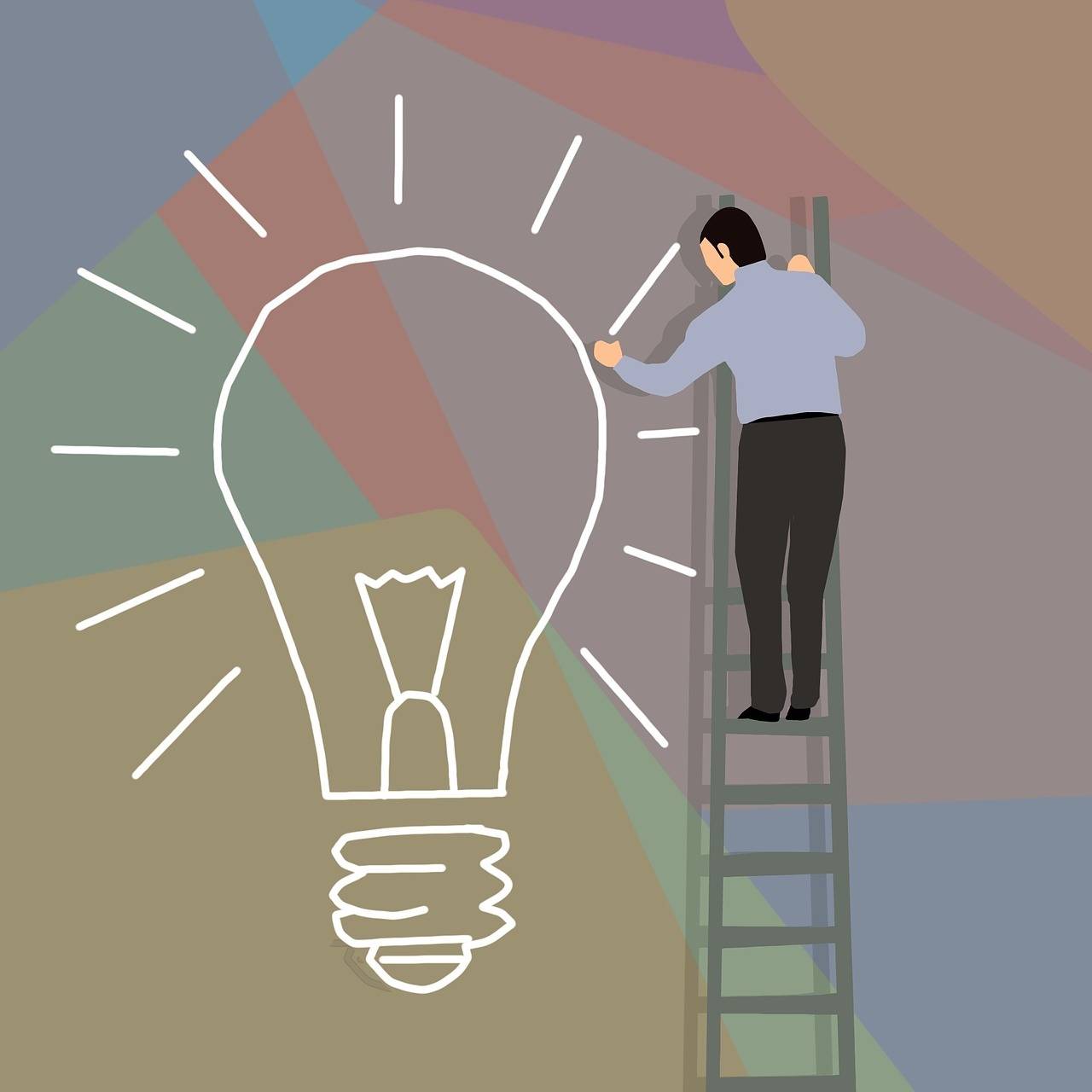Introduction
In today’s world, mastering oneself is the key to achieving personal and professional success. Self-mastery empowers individuals to navigate life’s challenges with purpose and intention. In this comprehensive guide, we’ll delve into the fundamental aspects of self-mastery, exploring its definition, importance, key principles, and practical strategies to help you embark on a transformative journey. Let’s begin by defining self-mastery.
Understanding the Basics of Self Mastery: A Guide to Personal Growth
Defining Self-Mastery
Self-mastery is the ability to take charge of one’s thoughts, emotions, and actions with a sense of purpose and intention. It’s about harnessing your inner power to shape your destiny.
In a world filled with distractions and external influences, self-mastery is the compass that guides you toward your true north. It enables you to stay focused on your goals, make informed decisions, and live a more fulfilled life. This concept forms the foundation of personal and professional success.
The Importance of Self-Mastery
Self-mastery empowers individuals to overcome obstacles, make informed decisions, and lead more fulfilling lives. It is the foundation of personal and professional success.
In a world filled with distractions and external influences, self-mastery is the compass that guides you toward your true north. It enables you to stay focused on your goals, make informed decisions, and live a more fulfilled life. This concept forms the foundation of personal and professional success.
The Key Principles of Self Mastery
Self-Awareness
Self-mastery begins with self-awareness. Understand your strengths, weaknesses, and triggers. Self-awareness is the first step towards transformation.
To embark on the journey of self-mastery, you must first know yourself. Self-awareness involves recognizing your strengths and weaknesses, understanding your emotional triggers, and gaining insight into your behavior. It’s like shining a light on the darkest corners of your mind, revealing the areas that require improvement.
Goal Setting
Set clear, specific, and achievable goals. Goals provide direction and motivation, propelling you towards self-mastery.
Goals are the milestones on your path to self-mastery. They provide a sense of purpose and motivation. Setting clear, specific, and achievable goals gives you a roadmap to follow. These goals act as beacons, guiding you forward and helping you measure your progress.
Emotional Intelligence
Emotional intelligence is the ability to recognize and manage your emotions effectively. It leads to better decision-making and stronger relationships.
Emotional intelligence, often abbreviated as EQ, is the ability to understand, manage, and express your emotions effectively. It also involves recognizing and empathizing with the emotions of others. Developing emotional intelligence is crucial for making informed decisions, building strong relationships, and effectively managing life’s challenges.
Resilience
Resilience is the capacity to bounce back from setbacks. Develop resilience to overcome challenges on your path to self-mastery.
Life is filled with ups and downs, but resilience allows you to weather the storms and come out stronger. It’s the ability to bounce back from setbacks, adapt to change, and keep moving forward. Resilience is an essential trait on your journey toward self-mastery.
Strategies for Self-Mastery
Mindfulness and Meditation
Mindfulness and meditation practices cultivate self-awareness, reduce stress, and enhance focus. Incorporate them into your daily routine.
Mindfulness and meditation are powerful tools for self-mastery. These practices help you become more aware of your thoughts and emotions, reduce stress, and enhance your ability to focus. By integrating them into your daily routine, you can gradually improve your self-awareness and emotional control.
Time Management
Efficient time management allows you to prioritize self-improvement activities. Use tools like the Eisenhower Matrix to organize your tasks effectively.
Time is a precious resource, and effective time management is essential for self-mastery. The Eisenhower Matrix, a popular time management tool, helps you categorize tasks based on their importance and urgency. By allocating time to self-improvement activities, you can make steady progress toward your goals.
Continuous Learning
Commit to lifelong learning. Acquiring new skills and knowledge boosts self-confidence and adaptability.
Never stop learning. The pursuit of knowledge and skills is a cornerstone of self-mastery. Continuous learning not only boosts your self-confidence but also enhances your adaptability to new situations. It keeps your mind agile and open to growth opportunities.
Positive Affirmations
Use positive affirmations to reprogram your subconscious mind for success. Replace self-doubt with self-belief.
Positive affirmations are powerful tools for changing your mindset. By repeating positive statements, you can reprogram your subconscious mind and replace self-doubt with self-belief. Affirmations like “I am capable of achieving my goals” can boost your confidence and reinforce your commitment to self-mastery.
Achieving Self-Mastery in Practice
Creating a Self-Mastery Plan
Craft a personalized plan that incorporates the principles and strategies mentioned above. A well-structured plan is your roadmap to self-mastery.
To achieve self-mastery, you need a roadmap. Create a personalized self-mastery plan that outlines your goals, strategies, and milestones. A well-structured plan serves as your guiding light, helping you stay on course and track your progress.
Building Support Systems
Surround yourself with a supportive network of friends, mentors, and coaches who can provide guidance and encouragement.
No one walks the path to self-mastery alone. Building a support system of friends, mentors, and coaches is invaluable. They can offer guidance, share their experiences, and provide encouragement when you face challenges.
Tracking Progress
Regularly assess your progress towards self-mastery. Adjust your plan as needed to stay on course.
Self-mastery is an ongoing journey. Regularly assess your progress, celebrate your achievements, and adjust your plan as needed. Adaptability and flexibility are key as you continue to grow and evolve.
Success Stories of Self-Mastery: Real-Life Examples of Transformation
In our journey to understand the basics of self-mastery, it’s often inspiring and enlightening to explore real-life success stories of individuals who have achieved remarkable personal growth and transformation. These stories serve as testaments to the power of self-awareness, goal setting, emotional intelligence, resilience, and the strategies we discussed earlier. Let’s delve into some compelling success stories that showcase the incredible potential of self-mastery.
- The Metamorphosis of Oprah Winfrey Oprah Winfrey, an exemplar of self-mastery, stands as one of the most influential and prosperous media magnates of our era. Her narrative attests to the extraordinary potency of self-awareness and tenacity.
Oprah grappled with a multitude of adversities in her formative years, including destitution and a tumultuous upbringing. Nonetheless, she recognized the significance of self-awareness and, through introspection, identified her inherent strengths and fervors. This self-awareness charted her course toward a vocation in media, eventually culminating in the inception of “The Oprah Winfrey Show.”
Through her talk show, Oprah exhibited emotional sagacity by establishing profound emotional connections with her viewers. Her capacity for empathy and effective communication played a pivotal role in her ascendancy.
Despite encountering setbacks and critical censure on her journey, Oprah’s tenacity empowered her to rebound with even greater resilience. She erected a media empire, ascended to billionaire status, and harnessed her influence for benevolent transformation, serving as an inspiration to millions across the globe.
- The Odyssey of Tony Robbins Tony Robbins, a renowned life coach, author, and orator, serves as another prime archetype of self-mastery. His narrative underscores the import of perpetual learning and the repercussion of affirmative assertions.
In his initial years, Tony confronted financial tribulations and a dearth of purpose. Nevertheless, he remained steadfast in his determination to revolutionize his existence. He pledged himself to a lifelong quest for knowledge, meticulously studying personal development and imbibing wisdom from authorities in the domain.
Through this ceaseless pursuit of knowledge, Tony cultivated a profound comprehension of human behavior, emotions, and motivational dynamics. He emerged as a virtuoso of emotional intelligence, bestowing empowerment upon others to take command of their destinies.
Affirmative assertions played a pivotal role in Tony’s voyage. He employed them to reprogram his subconscious psyche for triumph, expelling self-doubt and instilling unwavering self-confidence. These assertions not only transfigured his own life but also formed the bedrock of his teachings, inspiring multitudes worldwide.
- The Resilience of J.K. Rowling J.K. Rowling, the luminary behind the cherished Harry Potter saga, exemplifies resilience and the aptitude to rebound from adversity. Her odyssey stands as an awe-inspiring testimony to the prominence of resilience in self-mastery.
Before attaining literary eminence, J.K. Rowling confronted a sequence of challenges, encompassing indigence, despondency, and rejection from publishers. Nevertheless, she refused to relinquish her dream of becoming a wordsmith.
Rowling’s tenacity manifested in her capacity to persist despite the odds. She persisted in her writing, refining her artistry, and upholding her unwavering faith in her narrative. Her perseverance bore fruit when a publisher finally extended acceptance to her manuscript for “Harry Potter and the Philosopher’s Stone.”
The Harry Potter series subsequently evolved into a global sensation, propelling Rowling to the zenith as one of the most affluent and influential authors globally. Her expedition serves as a potent reminder that setbacks are an integral facet of existence, but with resilience, they can metamorphose into stepping stones toward prosperity.
- The Mindfulness of Jon Kabat-Zinn Jon Kabat-Zinn, the progenitor of Mindfulness-Based Stress Reduction (MBSR), personifies the authority of mindfulness and meditation in the realm of self-mastery. His labor has transmuted innumerable lives by enriching self-awareness and diminishing stress.
Kabat-Zinn’s voyage commenced with a profound realization concerning the significance of mindfulness in the management of stress and the augmentation of overall well-being. He formulated MBSR, an initiative that amalgamates mindfulness meditation and yoga, with the aim of assisting individuals in cultivating self-awareness and emotional equilibrium.
By means of the practice of mindfulness, Kabat-Zinn has provided succor to individuals from diverse walks of life, including those grappling with chronic pain, anxiety, and melancholy. His approach capacitates individuals to traverse life’s tribulations with heightened ease and lucidity, fostering self-mastery in the process.
FAQs
1. What is self-mastery, and why is it important?
Self-mastery is the ability to control one’s thoughts, emotions, and actions with purpose. It’s vital because it empowers individuals to overcome obstacles and lead fulfilling lives.
2. How can I develop self-awareness?
Start by reflecting on your strengths, weaknesses, and triggers. Journaling, meditation, and seeking feedback from others are helpful practices.
3. Why is goal setting essential for self-mastery?
Goals provide direction and motivation. They act as milestones on your self-mastery journey, helping you measure progress.
4. What is emotional intelligence, and how can I improve it?
Emotional intelligence is the ability to recognize and manage emotions effectively. To improve it, practice empathy, active listening, and self-awareness.
5. How can I build resilience?
Resilience is built through adversity. Embrace challenges, learn from setbacks, and maintain a positive outlook.
6. How can mindfulness and meditation benefit self-mastery?
Mindfulness and meditation enhance self-awareness, reduce
stress, and improve focus, making them essential tools for self-mastery.
Conclusion
In conclusion, self-mastery is not a destination but a continuous journey of self-improvement. By understanding the fundamental principles and implementing effective strategies, you can navigate this path with confidence and purpose. Embark on this transformative journey, take control of your destiny, and unlock your full potential. Your journey to self-mastery begins today.





